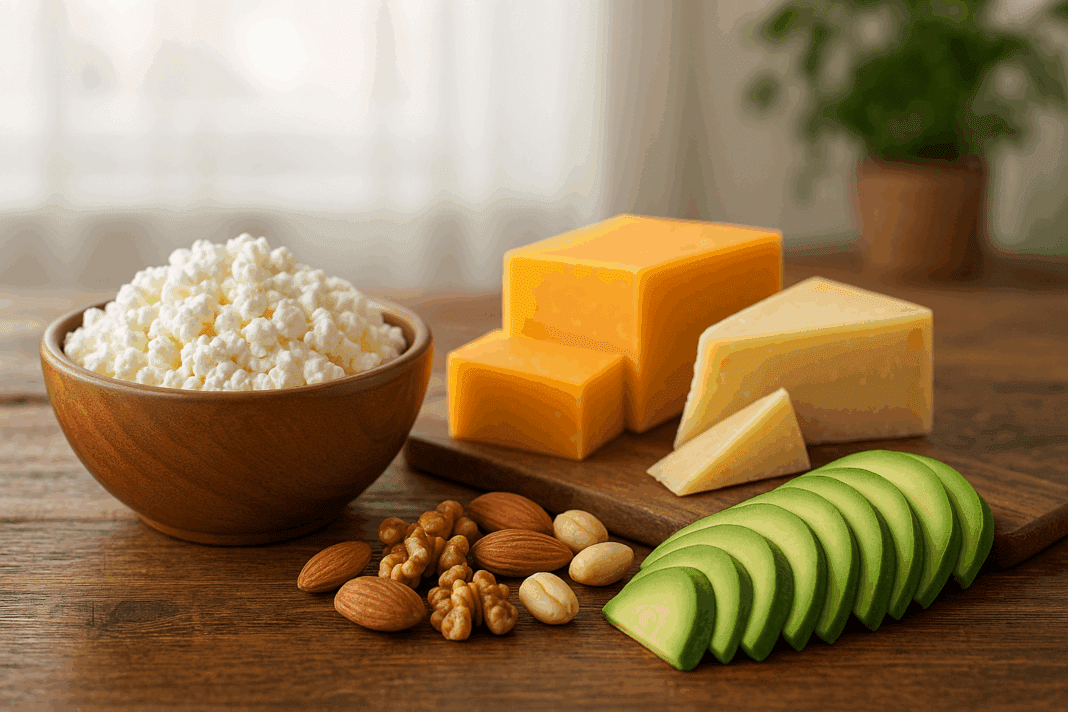Understanding the Keto Diet: Why Macronutrient Balance Matters
The ketogenic diet, often referred to simply as keto, is a high-fat, moderate-protein, and very low-carbohydrate dietary approach designed to shift the body into a state of ketosis. In this metabolic state, fat becomes the primary source of fuel instead of glucose. For many people, the goal of keto is to improve metabolic flexibility, enhance weight loss, and even support cognitive function. But staying in ketosis requires vigilance—especially when it comes to choosing foods that are traditionally seen as healthy, like dairy. This brings us to a common and important question: is cottage cheese keto?
You may also like: Is the Keto Diet Safe or Dangerous? What Experts Say About the Risks, Benefits, and Basics of the Ketogenic Diet
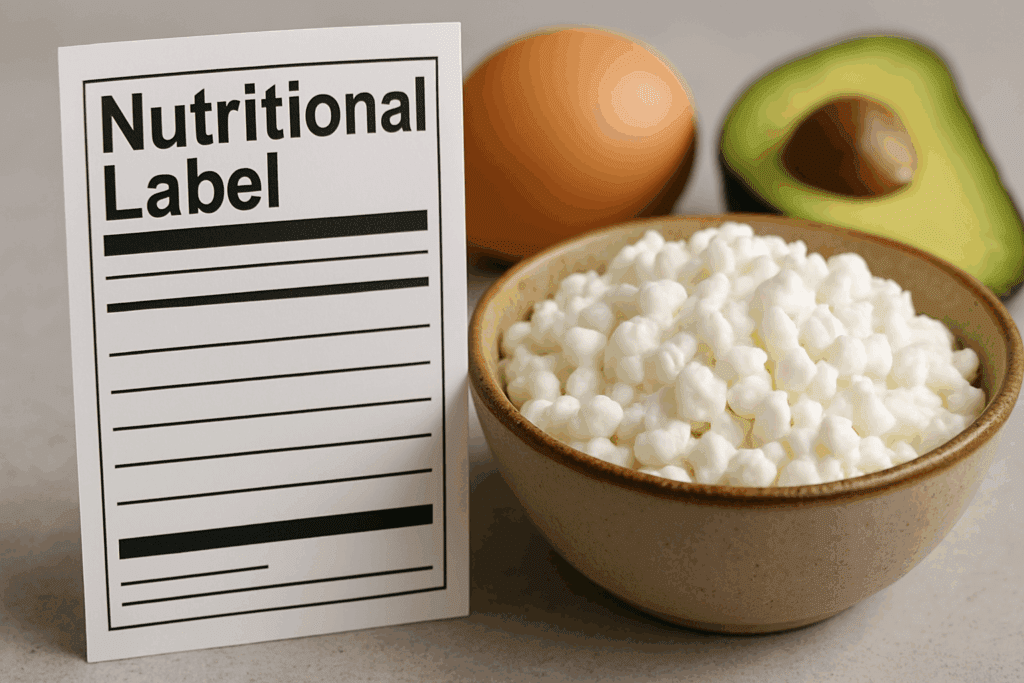
The Nutritional Profile of Cottage Cheese: Is It Keto-Compatible?
Cottage cheese is widely recognized for its high protein content and creamy texture, but its compatibility with the keto diet largely depends on its fat and carbohydrate levels. A typical half-cup serving of full-fat cottage cheese contains around 5 grams of carbohydrates, 14 grams of protein, and 5 grams of fat. These numbers can vary based on brand and processing methods. When people ask, “can you eat cheese on keto,” they often forget that not all cheese products are nutritionally equal.
To determine whether cottage cheese fits into a keto diet, one must consider portion sizes and the overall balance of macronutrients in daily intake. Full-fat versions are preferred over low-fat or reduced-fat varieties, which often have added sugars or thickeners that increase carbohydrate content. In moderation, cottage cheese can be a keto-friendly option, especially when paired with high-fat ingredients to maintain the desired macronutrient ratio.
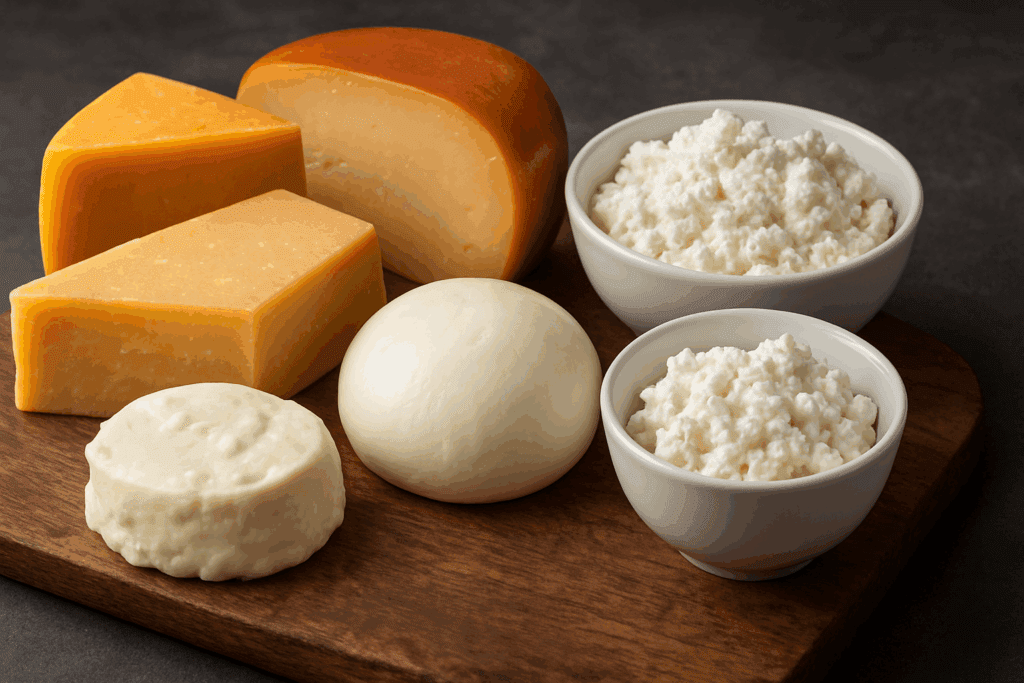
Cheese on the Keto Diet: Not All Cheeses Are Created Equal
When exploring the use of cheese on the keto diet, it’s essential to differentiate between aged and fresh cheeses. Hard, aged cheeses like cheddar, parmesan, and gouda typically contain minimal lactose and almost no carbs, making them ideal keto choices. In contrast, soft or fresh cheeses—such as ricotta, mozzarella, and cottage cheese—can have slightly higher carb content due to their unaged nature and residual milk sugars.
However, this doesn’t mean that fresh cheeses like cottage cheese are excluded from keto eating. In fact, they can play a strategic role when consumed mindfully. Their high protein content makes them especially beneficial for active individuals or those aiming to preserve lean muscle mass while losing fat. The key is knowing how to integrate them into your keto meal plan without disrupting ketosis.
How to Choose the Best Cottage Cheese for a Keto Diet
Not all cottage cheese is created equally. Brands differ widely in fat content, carb content, and the presence of additives. When selecting cottage cheese on a keto diet, opt for full-fat versions with simple ingredient lists. Avoid varieties that include added sugars, maltodextrin, modified starches, or preservatives. Reading labels carefully is one of the most effective ways to ensure that the cottage cheese you choose won’t interfere with your ketogenic goals.
For keto purposes, look for cottage cheese with fewer than 5 grams of carbs per serving and ideally at least 5 grams of fat. Some keto-friendly brands even include live cultures, which can support gut health—a bonus for those seeking a well-rounded approach to nutrition. While the question “is cottage cheese keto” has no one-size-fits-all answer, choosing the right brand brings you closer to a confident yes.
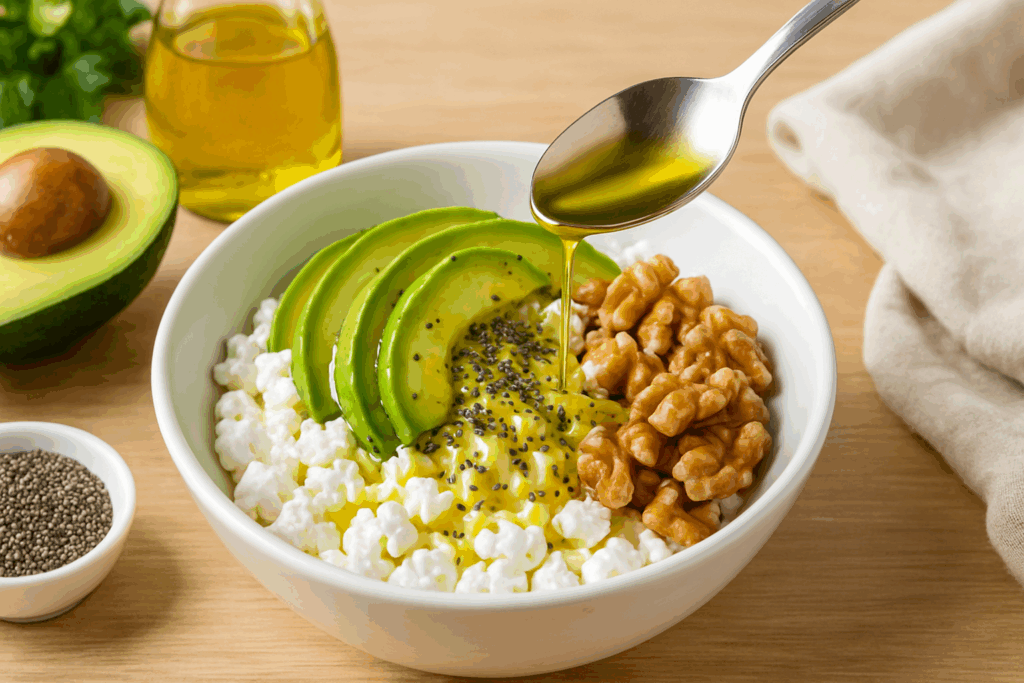
Enhancing the Fat Profile of Cottage Cheese in Keto Meals
One of the common challenges of including cottage cheese in keto meals is its lower fat content relative to its protein level. To address this, many keto practitioners modify their cottage cheese dishes by adding healthy fats. This might include mixing in extra-virgin olive oil, crushed walnuts, chia seeds, flaxseeds, or even avocado. These additions not only improve the fat-to-carb ratio but also make meals more satisfying and nutrient-dense.
Cottage cheese can also be used in savory recipes, such as low-carb casseroles, omelets, or dips. When paired with herbs, spices, and fats, it becomes a flavorful and filling component of the ketogenic kitchen. This approach aligns with the overall principle of the keto diet and cottage cheese—adjusting ingredients to support metabolic balance and enhance flavor without increasing net carbs.
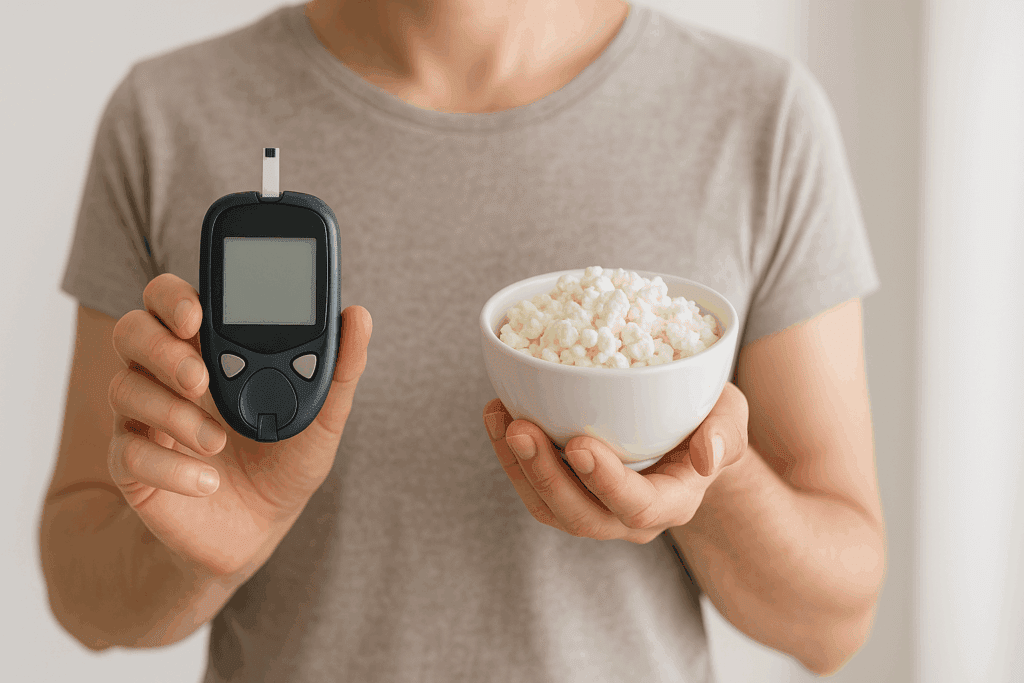
Insulin Response and Dairy: What Keto Dieters Should Know
Another aspect of cheese in keto that is often overlooked is how different cheeses impact insulin levels. Although cheese is low in carbohydrates, some dairy products, including cottage cheese, can elicit a stronger insulin response due to their whey protein content. For individuals with insulin resistance or those monitoring blood sugar closely, this is an important consideration.
That said, not everyone reacts to dairy the same way. The majority of people following a ketogenic diet can enjoy cottage cheese in moderation without any adverse effects on blood sugar or ketone levels. The key is personalization—testing how your body responds and adjusting accordingly. This individualized approach is not only smarter but also more sustainable for long-term keto success.
Cottage Cheese as a Transition Food in Low-Carb Lifestyles
Cottage cheese also plays an important role in helping people transition from traditional eating patterns to a ketogenic lifestyle. Its mild taste, familiar texture, and availability make it an appealing option for those easing into a lower-carb approach. When incorporated into a keto-friendly meal, it provides a bridge between old habits and new dietary frameworks.
For example, a serving of full-fat cottage cheese with a handful of almonds or a drizzle of MCT oil can serve as a nutrient-rich snack that keeps carb intake low while helping the body adapt to fat-burning. These practical applications make cottage cheese not only compatible with the keto diet but strategically useful for those still navigating the learning curve of macronutrient awareness.
What Nutrition Experts Say About Cottage Cheese and Keto
According to registered dietitians and ketogenic nutrition specialists, the keto diet and cottage cheese can indeed coexist when applied with knowledge and care. Experts emphasize the importance of individualizing the diet based on personal goals, metabolic responses, and lifestyle preferences. For athletes or individuals with higher protein needs, cottage cheese may serve a beneficial role, especially when paired with high-fat ingredients to achieve keto-friendly ratios.
Medical professionals also caution against assuming all cheese is equally beneficial on keto. While many aged cheeses are nearly carb-free, cottage cheese requires a more measured approach due to its slightly higher lactose content. Still, when portioned appropriately and selected from quality sources, it can be part of a well-rounded ketogenic nutrition strategy.
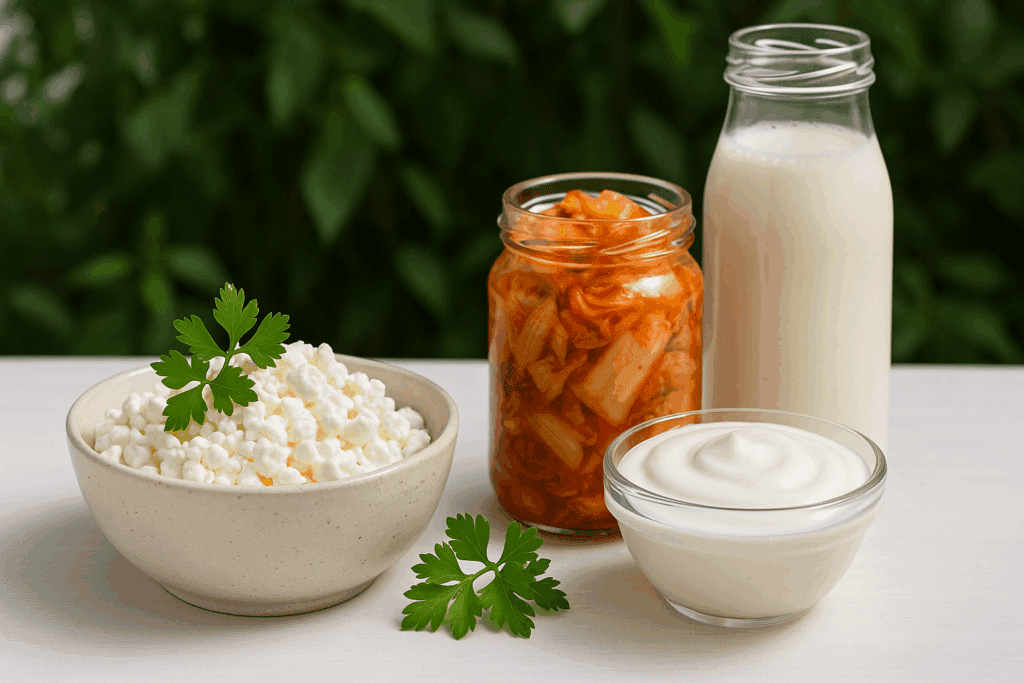
Gut Health Benefits of Certain Cottage Cheese Varieties
Though not typically marketed as a probiotic food, some brands of cottage cheese contain live active cultures that may contribute to digestive health. While the concentration of beneficial bacteria may not be as high as in fermented foods like yogurt or kefir, it still offers potential support for gut microbiota. This can be particularly helpful for keto dieters focusing not only on macros but also on overall wellness.
Fermented cottage cheese varieties can aid in digestion, reduce inflammation, and support immune health—important factors in any diet, including keto. Choosing options that combine these microbial benefits with full-fat content gives consumers the best of both worlds. It’s another reason why selecting the right cottage cheese matters more than simply asking, “can you eat cheese on keto?”\n\n## The Bigger Picture: Cheese in Keto and Nutrient Density
Beyond macronutrients, cheese contributes valuable micronutrients to a keto diet. Many cheeses are excellent sources of calcium, vitamin A, vitamin D, and vitamin K2. These nutrients are crucial for bone health, immune function, and cardiovascular support—especially important when carbohydrates are restricted, and nutrient intake must be more intentional.
Cottage cheese, although slightly lower in these fat-soluble vitamins than aged cheeses, still contributes to overall nutrient density. When combined with other whole foods like leafy greens, nuts, seeds, and low-carb vegetables, it helps form a comprehensive ketogenic meal plan. This reinforces that cheese in keto is not just about staying in ketosis—it’s about thriving in it.
Frequently Asked Questions: Cottage Cheese and the Keto Diet
1. Can eating cottage cheese impact your ability to stay in ketosis?
Yes, but it depends on the type and amount of cottage cheese consumed. Some individuals can remain in ketosis while eating small portions of full-fat cottage cheese, especially when it’s combined with other keto-approved foods. However, because cottage cheese contains lactose—a milk sugar—it can contribute to your daily carb count more quickly than aged cheeses. This makes it essential to monitor blood ketone levels if you’re in strict ketosis. People using cottage cheese on the keto diet should also be aware that different brands vary in carbohydrate content, and even small changes can affect your metabolic state.
2. What are the best times to include cottage cheese in a keto meal plan?
Cottage cheese works well during transitional phases, like starting the keto diet or coming out of intermittent fasting. Its high protein content can help ease hunger, while its relatively mild carb count makes it suitable for post-workout meals or early-day snacks. Including cottage cheese in keto-friendly recipes like frittatas or cauliflower-based dips can help enhance texture and satiety. It’s particularly useful in evening meals for those who want a slow-digesting protein without spiking insulin dramatically. In these contexts, asking “is cottage cheese keto” isn’t just about its macro profile—it’s about how and when you use it.
3. How does cottage cheese compare to other cheeses in keto diets when it comes to calcium absorption?
While hard cheeses like cheddar and Swiss are more nutrient-dense in fat-soluble vitamins, cottage cheese offers an absorbable form of calcium with less aging. The lower fat content in some varieties may reduce the bioavailability of certain vitamins, but combining cottage cheese with fatty foods like olive oil or nuts can improve nutrient absorption. For individuals focused on bone health while doing keto, integrating cottage cheese alongside vitamin D-rich foods can enhance calcium metabolism. This reflects a lesser-discussed aspect of cheese in keto: beyond macros, nutrient synergy plays a role. So, while you can eat cheese on keto broadly, how you combine it with other foods affects its nutritional value.
4. Are there fermented versions of cottage cheese that offer probiotic benefits on keto?
Yes, although not all commercially available cottage cheeses contain probiotics. Some artisanal or organic brands use live active cultures in their fermentation process, offering digestive support in addition to protein and fat. These can be particularly useful for keto dieters who are concerned with gut microbiome diversity—a factor often overlooked when focusing solely on carb counts. When choosing cheese on the keto diet, looking for probiotic-rich options may enhance overall wellness, not just help meet macronutrient goals. Checking labels for phrases like “live cultures” or “probiotic strains” can help you find versions that support gut health.
5. What role does portion control play in keeping cottage cheese keto-friendly?
Portion control is critical because even full-fat versions of cottage cheese contain some carbohydrates. A half-cup serving typically contains between 3 to 6 grams of carbs, which can be significant depending on your daily carb threshold. Eating beyond that amount—especially in recipes or with added toppings—can quickly push you out of ketosis. For those wondering, “can you eat cheese on keto regularly,” the answer hinges not just on the type of cheese, but on the portions you consume. Using a food scale or pre-measuring servings can help avoid hidden carb creep, particularly with foods that straddle the keto line.
6. How can cottage cheese support athletic performance on the keto diet?
Athletes and physically active individuals may benefit from using cottage cheese on the keto diet as a post-exercise recovery food. Its protein content helps repair muscle tissue, while the small amount of carbs may aid in replenishing depleted glycogen stores without kicking someone out of ketosis. Additionally, its casein protein is slow-digesting, making it ideal for sustained amino acid release. This makes it a strategic choice for endurance athletes using keto for fat adaptation. So when considering whether cheese in keto can enhance performance, cottage cheese offers a unique blend of recovery support and nutrient density.
7. Is cottage cheese appropriate for individuals using cyclical or targeted keto approaches?
Absolutely. For those following cyclical keto (CKD) or targeted keto (TKD), which allow for brief carb intakes around workouts or refeed days, cottage cheese can be especially useful. Its moderate carbohydrate level fits well into a targeted approach, where carbs are intentionally consumed around periods of intense physical activity. In these cases, the question isn’t simply “is cottage cheese keto,” but how it aligns with a flexible interpretation of the diet. These advanced methods make room for nutrient-dense foods like cottage cheese, provided the timing and portioning support overall metabolic goals.
8. How do personal tolerance levels affect whether cottage cheese fits your keto diet?
While one person may tolerate small amounts of cottage cheese and stay in ketosis, another might experience a more noticeable insulin response due to dairy sensitivity or metabolic variability. Testing ketone levels before and after eating cottage cheese can help determine personal compatibility. This biofeedback approach is more effective than rigidly asking, “can you eat cheese on keto or not.” It encourages a nuanced, personalized approach that aligns with EEAT principles of individual experience and expert guidance. Ultimately, metabolic individuality determines the role of cottage cheese on the keto diet.
9. Can cottage cheese support mental clarity and cognitive performance on keto?
Though not often discussed, the amino acids in cottage cheese—especially tryptophan and tyrosine—play important roles in neurotransmitter synthesis. Combined with a high-fat, low-carb environment, cottage cheese can help support mental performance by stabilizing blood sugar and providing steady fuel to the brain. For those using the keto diet therapeutically—for epilepsy, ADHD, or cognitive decline—this makes cottage cheese a compelling addition. Its inclusion in cheese on the keto diet conversations shouldn’t be limited to macros alone, but should also consider neurological benefits. This perspective adds a new layer of depth to understanding the value of dairy in keto-based cognitive optimization.
10. What innovations in cottage cheese production could benefit keto diets in the future?
Food science is beginning to evolve around low-carb, high-protein dairy options, including re-engineered cottage cheese. Future developments may include ultra-filtered versions with reduced lactose and enhanced fat content, specifically tailored for ketogenic consumers. Some companies are exploring fermentation methods that increase probiotic potency while lowering sugar levels. These innovations could expand the way cheese in keto is understood, making it easier to align taste preferences with strict nutritional needs. In a few years, asking “is cottage cheese keto” may become less relevant, as product formulations shift to meet the demands of metabolically focused lifestyles.
Final Thoughts: Choosing the Right Cheese on the Keto Diet Starts with Informed, Flexible Decisions
Cottage cheese can be a valuable part of the ketogenic diet when selected thoughtfully and consumed in appropriate portions. While it contains more carbohydrates than some other cheeses, its rich protein profile, adaptability in meals, and potential gut health benefits make it a versatile option for many keto eaters. Understanding how cheese on the keto diet works—especially when it comes to the keto diet and cottage cheese—empowers individuals to make personalized dietary choices that support both short- and long-term wellness goals.
When choosing cottage cheese, always prioritize full-fat, unsweetened varieties with clean ingredient lists. Pairing it with healthy fats like nuts, seeds, or oils can enhance its compatibility with ketosis and make meals more satisfying. Ultimately, the answer to “is cottage cheese keto” depends on how you use it. With informed decisions and mindful eating habits, cottage cheese can contribute to a nutrient-rich, sustainable keto lifestyle that supports metabolic health and dietary enjoyment.
Further Reading:
The 5 Best Cheeses to Eat if You’re Following the Keto Diet
20 Foods to Eat on the Keto Diet
5 Cheeses You Can Eat on the Keto Diet — and 5 You Can’t


